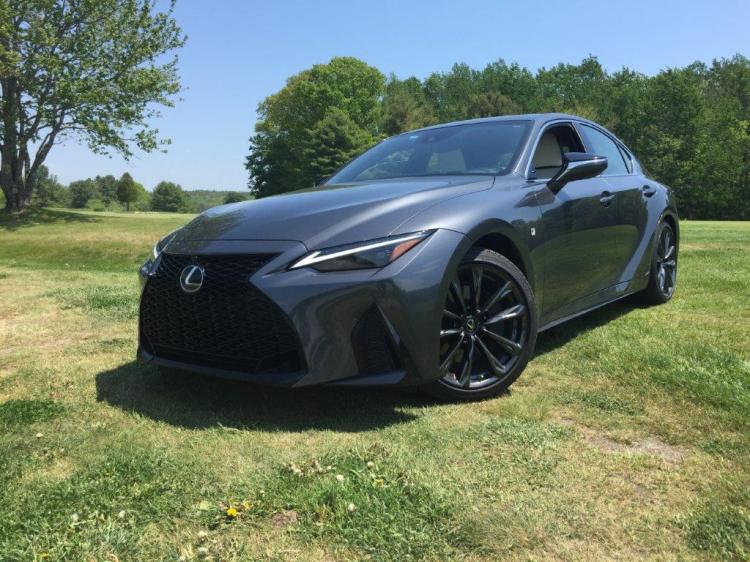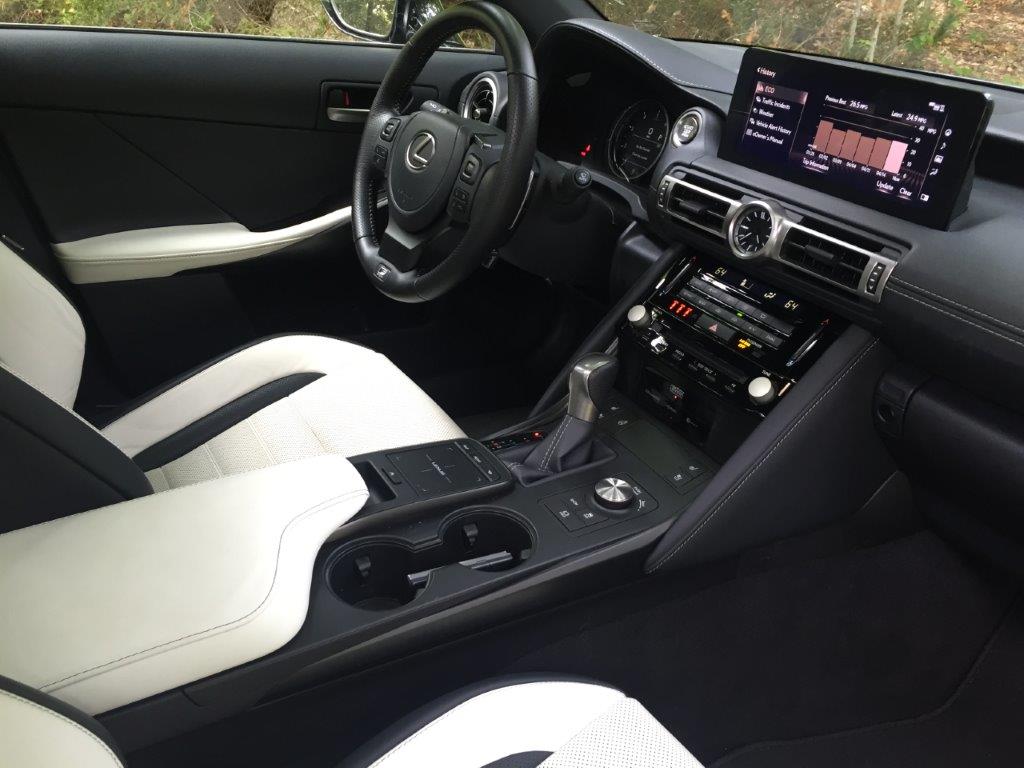In the battle for compact class sporty/luxury sedan supremacy, the winner has become… the compact crossover. Sedan sales are falling faster than shares in face-mask makers as the driving population has elected to purchase vehicles with sportiness, space, and mission flexibility.
That doesn’t mean that the premium automakers are giving up on their previous sources of enrichment, as compact class luxury cars still represent a certain affordability for buyers looking to move upmarket. These cars also offer a boatload of performance, handling acumen, and cache, all while achieving relative fuel responsibility.
Lexus is Toyota’s luxury division in America since 1989. It has long sought to crack the code that BMW, Audi and now Genesis, have employed to reach their highly regarded status as the benchmark small sedans. Previous attempts have always moved the brand closer to peer review status, but then the game changes and the Germans move ahead again.
This year’s IS350, the middle of three IS models Lexus now offers, is the strongest contender yet. While exterior modifications are limited, the IS gains better handling, improved driver assist hardware and easier to use infotainment screens. The screens can operated by a mouse pad or by touch.
The base IS300 ($40,075) uses a turbocharged four making 241-HP with rear or all-wheel drive. The mid-level IS350 ($44,900 to $52,850) has a more excitable 311-HP 3.5-liter naturally aspirated V-6 with the same drive-options. As you read this, the new IS500 sedan will go on sale, with a 472-HP 5.0-liter V-8 stuffed into the engine bay, which marks the return of the hyper-motor used in other Lexus hot-rod attempts of a decade ago. EPA ratings for our sampled IS350, with full-time AWD, 6-speed automatic, and F-sport package were 19/26-mpg on suggested premium fuel.
Like its rivals, Lexus knows that performance still sells. Why else would Lexus create the visually dynamic LC sports coupe/convertible series with prices starting at $94,000 and rising to $102,125 for the 2-seater convertible?
They did it because Lexus has been able to offer its customers the best retail experience of all of the luxury brands, an assortment of products with very refined interiors, plus great overall value. Even well-to-do drivers want to have their cake and eat it too.
Several points stand out. The IS interior is very polished. It is a fine mix of textures, fabrics, and touch-points that premium buyers will instantly gravitate towards. The dash is a little busy, but logical, while the improved infotainment is most welcome. The console could improve its function by having more storage, and the cabin is tighter than what rivals offer, despite the same, general exterior dimensions.
The trunk is roomy, but getting in required sports car like nimbleness for taller people. The seats are quite supportive once you’re there. There’s a hump on the floor under the driver’s right leg due to AWD hardware, which seems odd at first, but it actually proves to be a restful brace for long drives.
Light the wick and the IS350 has the go-power to pace the class. The enhanced handling package, with an optional adaptive suspension system, compliments the AWD system’s steady grip and moves the IS needle closer to the Germans. Ride compliance is improved too, yet highway road noise was more prevalent than usual in a Lexus.
As mentioned, the IS represents value, with a host of standard driving assist features and luxury components that price the Lexus below its main rivals. Even with the upscale 1,800-watt, Mark Levinson, surround-sound 17-speaker audio system, triple-beam LED headlights ($1,250) Intuitive Parking assist ($1,400), moonroof, special Sonic Chrome Paint, plus F-sport chassis upgrades, the IS350’s $52,000 sticker seemed very doable in an age where retails are getting a little unreasonable.
Strong visuals, refined premium cabin, and better driving dynamics will always play well to consumers shopping for sedans in this segment. A turbo-six with more torque, more gears in the transmission, plus some more interior space would make the IS the small hot-rod that Lexus needs in this class.
Perhaps those pieces will premiere in a Lexus-badged crossover soon, as the market continues its rapid shift away from conventional cars.
Send questions/comments to the editors.




